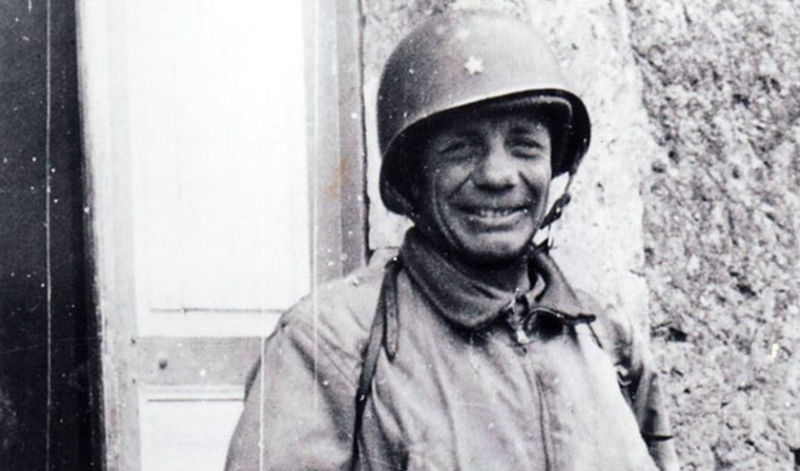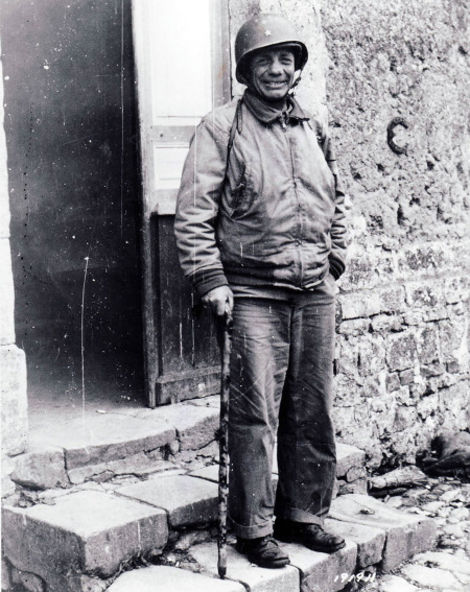
Theodore Roosevelt Jr., eldest son of President Theodore Roosevelt and First Lady Edith Roosevelt, was the only general on D-Day to land by sea with the first wave of troops. At 56, he was the oldest man in the invasion, and the only one whose son also landed that day; Captain Quentin Roosevelt II was among the first wave of soldiers at Omaha Beach.
Brigadier General Roosevelt was one of the first soldiers, along with Captain Leonard T. Schroeder Jr., off his landing craft as he led the 8th Infantry Regiment and 70th Tank Battalion landing at Utah Beach. Roosevelt was soon informed that the landing craft had drifted south of their objective, and the first wave of men was a mile off course. Walking with the aid of a cane [due to arthritis] and carrying a pistol, he personally made a reconnaissance of the area immediately to the rear of the beach to locate the causeways that were to be used for the advance inland. He returned to the point of landing and contacted the commanders of the two battalions, Lieutenant Colonels Conrad C. Simmons and Carlton O. MacNeely, and coordinated the attack on the enemy positions confronting them. Opting to fight from where they had landed rather than trying to move to their assigned positions, Roosevelt’s famous words were, “We’ll start the war from right here!”
These impromptu plans worked with complete success and little confusion. With artillery landing close by, each follow-on regiment was personally welcomed on the beach by a cool, calm, and collected Roosevelt, who inspired all with humor and confidence, reciting poetry and telling anecdotes of his father to steady the nerves of his men. Roosevelt pointed almost every regiment to its changed objective. Sometimes he worked under fire as a self-appointed traffic cop, untangling traffic jams of trucks and tanks all struggling to get inland and off the beach. One GI later reported that seeing the general walking around, apparently unaffected by the enemy fire, even when clods of earth fell down on him, gave him the courage to get on with the job, saying if the general is like that it can’t be that bad.
When Major General Barton, the commander of the 4th Infantry Division, came ashore, he met Roosevelt not far from the beach. He later wrote:
By modifying his division’s original plan on the beach, Roosevelt enabled its troops to achieve their mission objectives by coming ashore and attacking north behind the beach toward its original objective. Years later, Omar Bradley was asked to name the single most heroic action he had ever seen in combat. He replied, “Ted Roosevelt on Utah Beach.”
Following the landing, Roosevelt utilized a Jeep named “Rough Rider” which was the nickname of his father’s regiment raised during the Spanish–American War.
[Stolen from Wikipedia]

Roosevelt died of a heart attack in Normandy just one month after the invasion. For his heroism on D-Day, he was posthumously awarded the Congressional Medal of Honor.